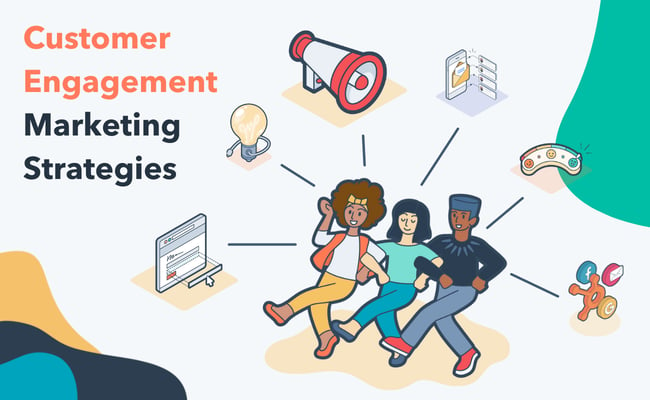
Customer engagement marketing is a new approach to the traditional customer relationship management model. Rather than focusing solely on acquiring new customers, it also focuses on nurturing existing relationships with clients and building trust with them. A customer engagement marketing strategy creates automated systems that monitor customer data, scores, and preferences to ensure that as soon as a client inquiries, they receive a response within hours – if not minutes.
Build trust
Trust is essential to a successful business. Trust is built by providing good service, being honest and trustworthy, and being consistent. Trust can be lost by not keeping promises, not delivering quality products or services, or not being consistent.
Reward and retain loyal customers
Give customers something back. Reward them with a discount or a gift. You can do this by offering free shipping on all orders over $50, or giving them access to exclusive content and discounts if they sign up for your email list.
Retain them by giving them something they can’t get elsewhere. Offer them an exclusive experience that only you can provide, such as a tour of your factory or the CEO doing an AMA on Reddit about his favorite movies. By providing unique experiences for your customers, you not only show that you care about their needs but also differentiate yourself from competitors who might offer similar products at lower prices but don’t offer anything special in return for loyalty.
Become customer-centric
Customer-centricity is a key component of customer engagement marketing. A customer-centric organization understands that its customers are the lifeblood of its business and focuses on meeting their needs with the end goal of creating value for them. The more you focus on fulfilling your customers’ needs, the more likely it is that they will become loyal to you.
Customer-centric companies are more profitable than those that aren’t because they attract and retain talent better, innovate more often, and have higher employee engagement scores and less employee turnover, which means less training costs.
Create and nurture relationships
A relationship is a shared experience. It’s based on trust, loyalty, and reciprocity. If you have ever had someone who was there for you when others did not or could not be trusted, this was an example of a relationship at play. Relationships take time to grow and develop; they require nurturing over time until the relationship is solidified between two people or entities (e.g., customers and brands).
Relationships are important because they help build loyalty in customers – which leads to increased profitability for businesses that do it right. Loyal customers tend to stay longer with your brand than those who aren’t loyal because they want more of what makes them happy and satisfied as opposed to something else that might give them less value than what another brand could offer them instead of yours.
Conclusion
In short, customer engagement marketing is a way to stay ahead of the curve and keep your customers engaged with your brand. By creating content that is relevant and timely, you can build trust with them and reward them for their loyalty while they are still deciding whether or not they want to purchase from you.
Once they’ve become loyal customers, it’s important to nurture those relationships so that they continue buying from you year after year. Finally, becoming customer-centric means putting yourself in their shoes so that every decision made by your company is based on what would make them happy rather than just trying to make money off them.